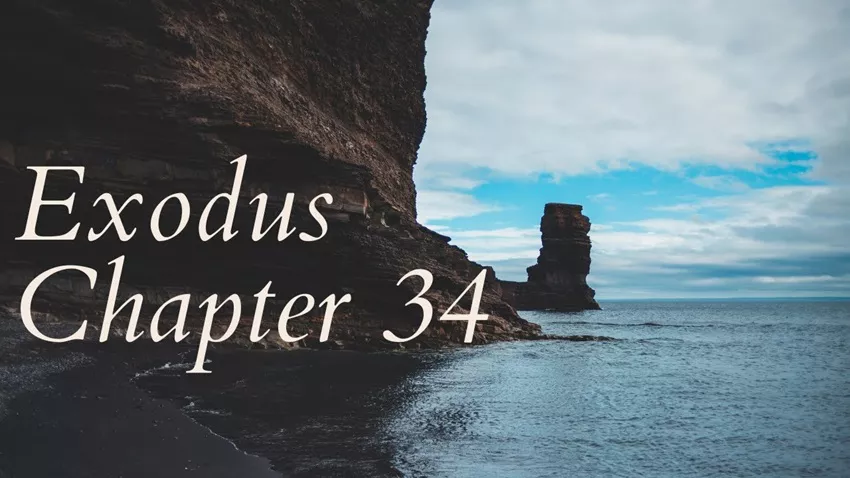Exodus Chapter 34 Summary
Exodus 34 marks a renewal of God‘s covenant with Israel after the incident with the golden calf. God commands Moses to carve new tablets of stone, replacing the ones Moses had shattered. As Moses ascends Mount Sinai, God descends in a cloud, revealing His glory and proclaiming His nature: compassionate, gracious, slow to anger, and forgiving, but also just in punishing the guilty. God instructs Moses to observe specific laws, including the covenant of the Promised Land and the importance of avoiding idolatry. Moses spends 40 days and nights on the mountain, during which his face radiates with God’s glory, a sign of divine favor. This chapter emphasizes God’s mercy, holiness, and faithfulness to His promises.
Bible Exodus Chapter 34
Welcome to read Exodus Chapter 34. Here is the list of Exodus Chapter 34:
What Does Exodus Chapter 34 Teach Us?
Exodus 34 marks a pivotal moment in Israel’s journey, as God renews His covenant with the Israelites after their sin with the golden calf in Exodus 32. In this chapter, we see God’s justice, mercy, and faithfulness. There are several key lessons that can be drawn from this chapter:
1. The Power of God’s Forgiveness
In Exodus 34:1-4, God commands Moses to carve new tablets to replace the ones he broke in anger (Exodus 32:19-20) when he witnessed the people’s sin. This act of renewing the tablets symbolizes God’s forgiveness. Despite Israel’s rebellion, God is willing to restore His covenant with them. This teaches us that no matter how severe our failures may be, God’s forgiveness is always available when we sincerely repent.
2. God’s Revelation of His Character
In Exodus 34:5-7, God reveals His own nature to Moses, declaring: “The LORD, the LORD, the compassionate and gracious God, slow to anger, abounding in love and faithfulness…” This description highlights God’s mercy, love, and justice. While God is just and will not leave the guilty unpunished, He is also overflowing with grace and forgiveness. This teaches us about the balance of God’s holiness—He is just, but He is also full of mercy and love.
3. The Call to Renew the Covenant
In Exodus 34:10-11, God calls the Israelites to renew their covenant with Him and obey His commands. God promises to perform miracles for His people, but their response must be faithfulness. The renewal of the covenant shows that God’s promises are contingent on His people’s obedience. This teaches us that God desires a relationship with us based on mutual commitment, where we trust and obey His commands in return for His blessings.
4. The Danger of Idolatry
In Exodus 34:12-16, God warns the Israelites against making covenants with the people of the land they are entering. Specifically, He warns them against worshiping idols and participating in idolatrous practices. This underscores the danger of allowing idolatry to enter our hearts, even subtly. It teaches us the importance of remaining faithful to God and keeping our worship focused solely on Him, free from distractions or false gods.
5. The Importance of Observing God’s Commands
Exodus 34:18-26 emphasizes the importance of observing God’s commandments. From the Feast of Unleavened Bread to the laws about firstborn animals and sacrifices, God lays out specific instructions that His people are to follow. This reinforces the idea that obedience to God’s Word is essential for maintaining a healthy relationship with Him. It teaches us that following God’s commandments is not optional but central to living in accordance with His will.
6. God’s Faithfulness and Presence
Finally, Exodus 34:27-35 shows that God’s presence with His people is not only a mark of His favor but also a reminder of His holiness. Moses’ face shines after meeting with God, reflecting the glory of God. This teaches us that when we encounter God, His glory changes us. Just as Moses’ face reflected God’s glory, we, too, are called to reflect His presence in our lives.
Related topics:


